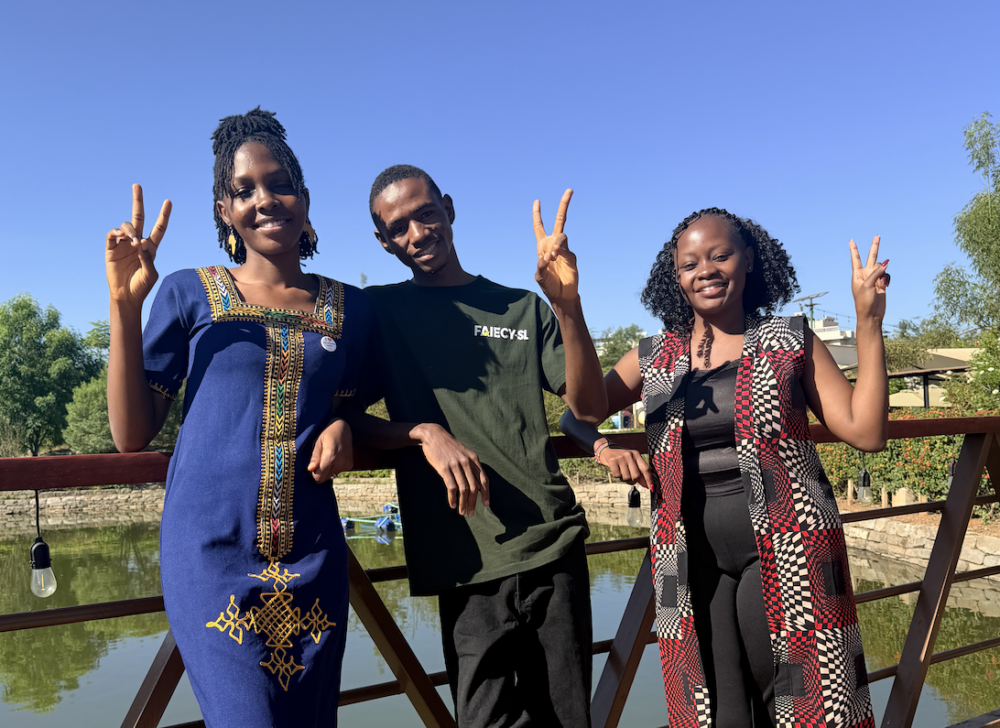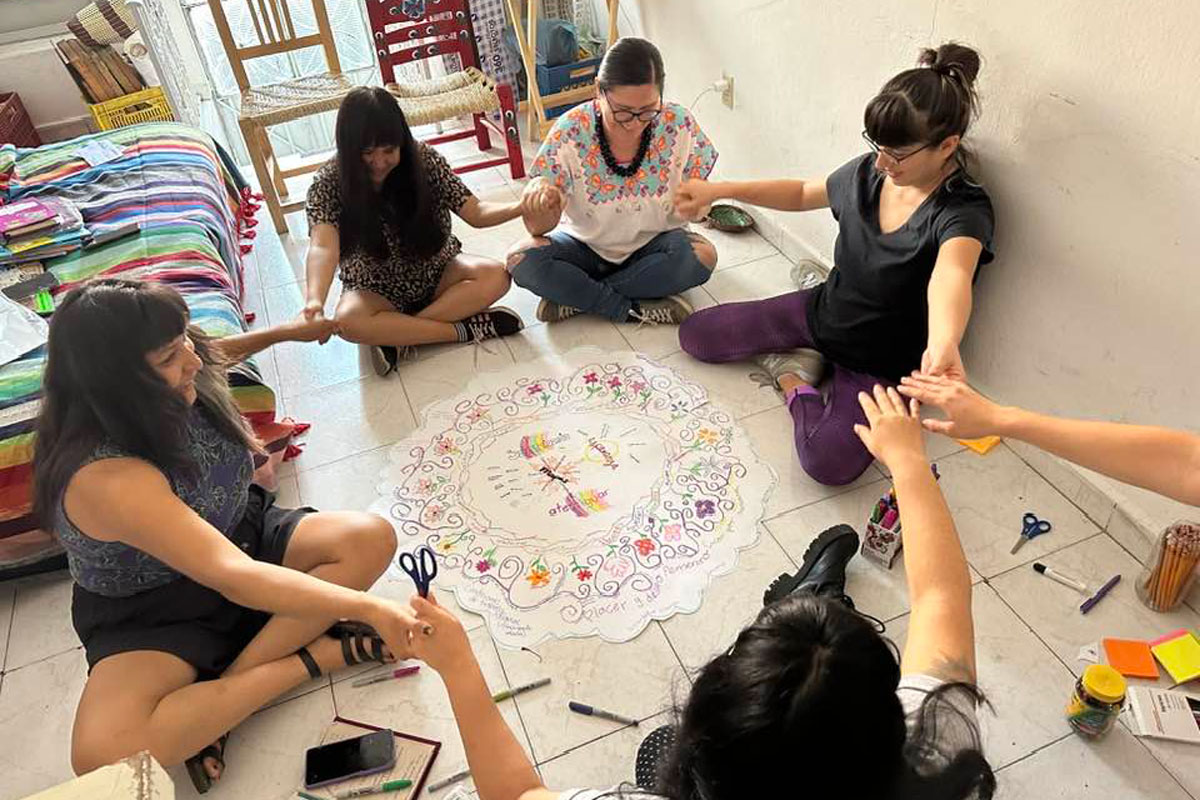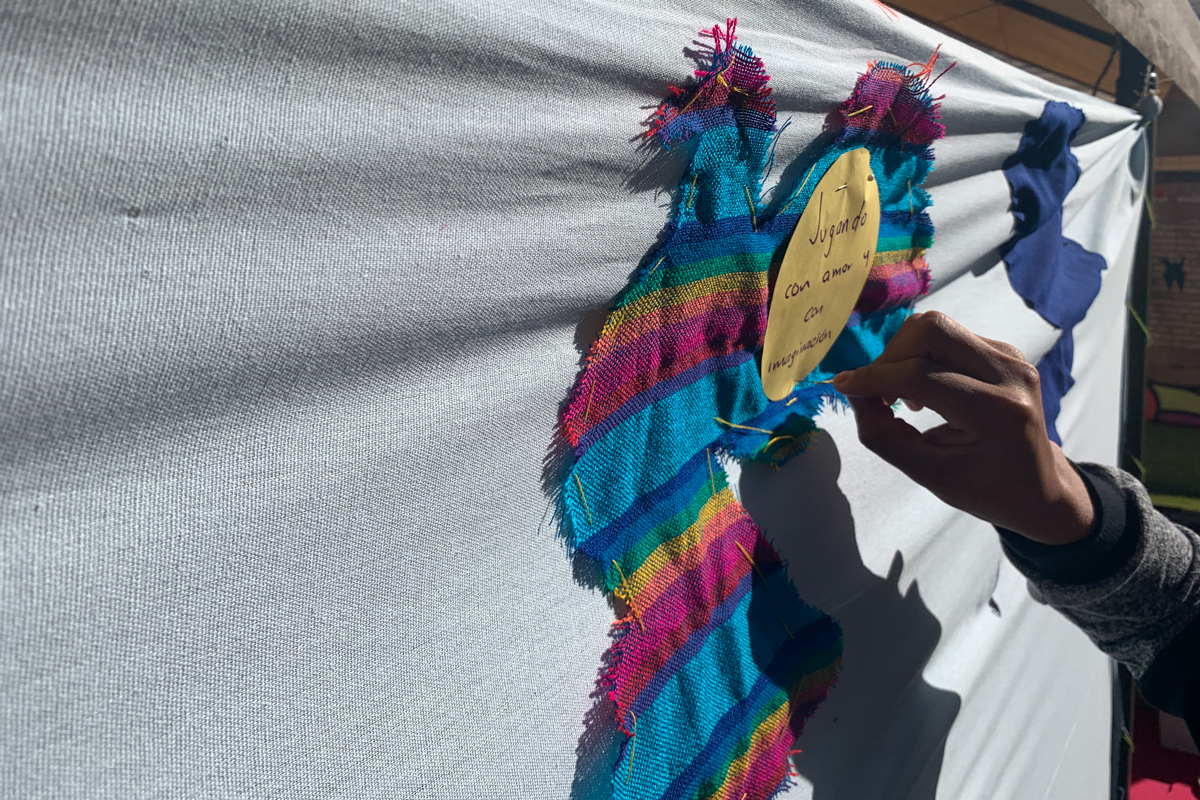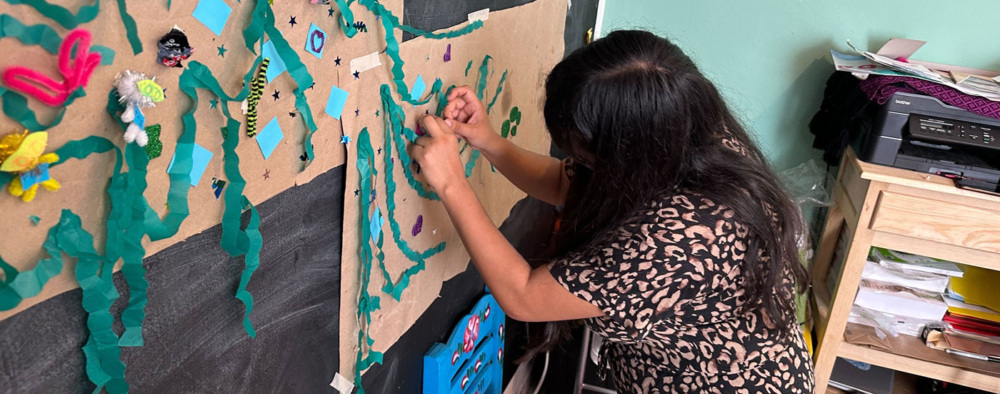
Youth power
Gender justice, Safety and wellbeing, Youth power
Editor’s note: This blog post is also available in Spanish.
Colectiva MAPAS is part of GFC’s Girls Experiencing Migration initiative, which is supported by Tides Foundation and Comic Relief US.
Adolescent girls from P’urhépecha Indigenous farmworker communities in Mexico’s Michoacán state face many challenges.
During harvest season, they travel with their families to agricultural areas, where they spend months away from their hometown support systems and often experience racism. This seasonal migration impacts their ability to access education because the Mexican government recently ended a program that allowed migrant children to transfer their grades between schools when they moved. Some P’urhépecha families are also impacted by the violence organized crime groups perpetrate in Michoacán.
In order to meet the unique needs of adolescent girls from P’urhépecha farmworker communities, Sofía Blanco and Liz Limón Ahumada founded Colectiva MAPAS in 2018. They had previously worked with these communities at a different organization, but they wanted to create a feminist collective that put girls at the center of its work.

Colectiva MAPAS, which is part of GFC’s Girls Experiencing Migration initiative, offers workshops, camps, and other activities to empower adolescent migrant girls. The organization creates safe spaces for the adolescents to talk about their indigenous identities, menstruation, sexual and reproductive health, girls’ rights, and their dreams and goals for the future. When the girls migrate to agricultural regions with their families, members of the collective travel to these areas so they can continue providing support.
One of Colectiva MAPAS’s programs is a feminist school that offers workshops and discussions on topics like feminist self-defense, menstruation, and boundaries. The school also supports adolescent girls in organizing festivals where they can build connections with each other and participate in creative activities such as dancing and art projects.
“This feminist school has been very powerful because many girls recognized themselves not only as changemakers but also as part of the decision-making of their schools,” Sofía explained. After participating in the feminist school, adolescent girls have advocated for girls’ soccer teams at their schools, for example, and permission to wear pants, instead of skirts, to class.

Colectiva MAPAS’s “Camps for Rebellious Girls and Adolescents” offer another space for adolescent girls, including survivors of sexual assault and other types of violence, to participate in workshops and creative activities while sharing their ideas and establishing new friendships.
“It’s a space that creates an opening so that girls can disobey and build spaces for their dreams and for conversations about topics that are important to them,” Liz said.
The camps and other Colectiva MAPAS activities also provide what Sofía described as “a listening space” for young people who are part of the LGBTQ+ community to discuss their questions and concerns with adult allies. “We are opening these spaces for dialogue not from a place of stigma but from a place of openness,” she said.
Outside of the camps and feminist school, Colectiva MAPAS hosts other workshops on a variety of topics including math and writing, to provide other tools to help adolescent girls succeed in school.
“These workshops are also a way of opening up conversations with the girls and adolescents,” said Celina Manuel, one of the collective’s members. “With the passing of time, we build more trust, and they start to tell us more things: what their concerns are, what worries them, what they’re excited about as well.”
The collective has also helped girls map the areas where they live and study to identify places where they feel safe and unsafe. Together, they come up with strategies for avoiding dangerous areas, or, if the girls must pass through them during their daily routines, strategies for staying safe, like traveling with a friend. Colectiva MAPAS also supports the families of victims of femicide and helps adolescent girls access the justice system.
Sofía, Liz, and Celina said that one of the best parts of their work is watching the adolescent girls pursue their dreams and take on leadership roles.
“Seeing how because of the workshops we’ve had, they have become more dedicated to their school work or they have thought about menstruation from another perspective or defended themselves in the spaces where they are,” Sofía said. “And it’s also wonderful when they take up space and say, ‘Excuse me, let’s do this in a better way.’”
Header photo: One of the activities at a Mapping Organizational Impact workshop with GFC partner Colectiva MAPAS in Michoacan, Mexico. © GFC
